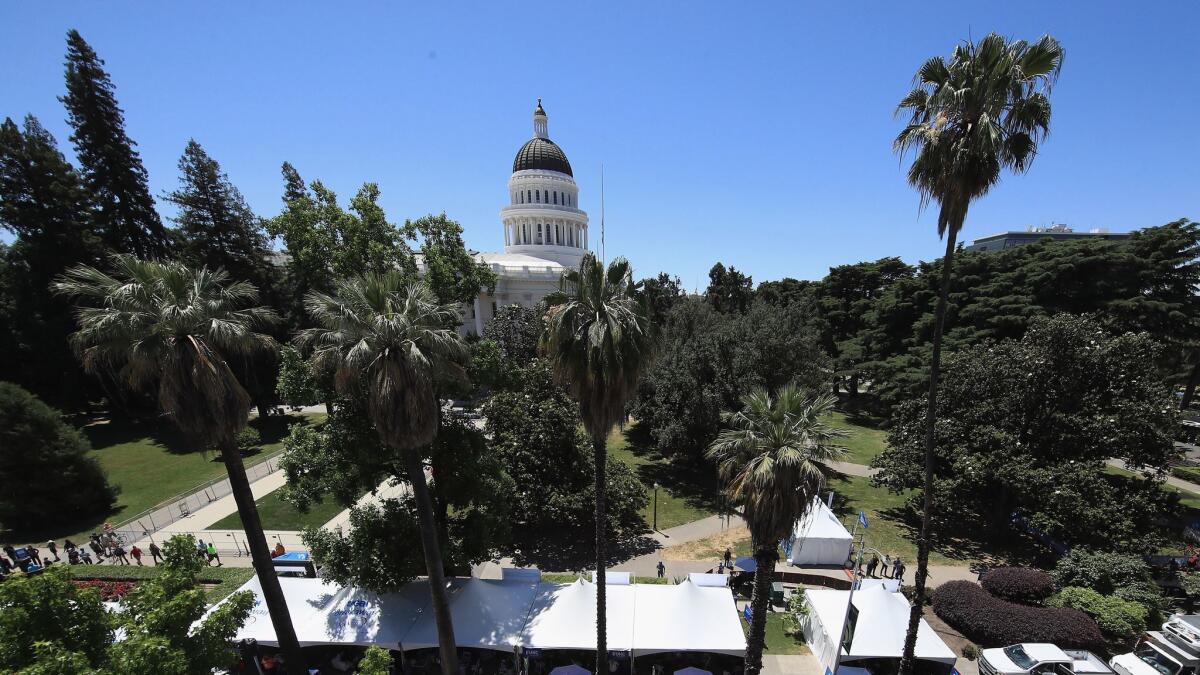Editorial: The Assembly is deliberately misinterpreting California’s transparency law

- Share via
Weeks after voters passed Proposition 54, the California Legislature Transparency Act last November, the state Assembly declared its intention to flout one of the key parts of the initiative: the requirement that the final text of a bill be printed and posted online at least 72 hours before it is passed. Assembly leaders asserted that the mandate didn’t apply to resolutions because they don’t have the force of law, or to final votes in the Assembly if the bill has yet to be approved by the Senate.
That’s ridiculous, and appears to be a deliberate misinterpretation of the proposition. Though the measure included a number of provisions designed to make it easier for the public to keep track of the legislative process, its most important was the three-day rule. The intent was to curb the practice of slipping in changes right before a vote — and before the public had any idea what just happened.
A coalition of good government and taxpayer groups that supported Proposition 54, including the League of Women Voters of California, California Forward and the Howard Jarvis Taxpayers Assn., appealed to the Assembly to play by the new rules, even if lawmakers didn’t like them. (We did too.) Yet, last week the Assembly passed dozens of bills — more than 50 by one count — that Proposition 54 proponents say did not meet the 72-hour requirement.
Not only is this an affront to voters, it’s a step backward for transparency and good government — a capitulation to Assembly leaders eager to do business with as little scrutiny and oversight as possible. The last-minute passage of bills that even the lawmakers voting on them haven’t read or digested is an egregious practice. Having been rebuked by the voters, the Assembly’s leaders are now thumbing their noses back by refusing to live up to the law.
Failing to comply with Proposition 54 may also make those bills vulnerable to legal challenge. Why cast a bill’s legitimacy into doubt just to make a point? State senators didn’t like the new law any more than their Assembly counterparts, but still met the 72-hour mandate with their bills this session with no apparent detriment to their ability to legislate effectively. Indeed, the Senate’s passage of a bill to raise fuel taxes and vehicle fees for transportation funding should assuage legislators’ concerns that the rule would make it tough to pass important but controversial new laws.
The Proposition 54 coalition this week sent letters to the Senate and the governor complaining about the Assembly’s non-compliance. But complaints are not likely to sway Assembly Speaker Anthony Rendon (D-Paramount) and his colleagues, who are unrelenting in their position that the text of the law allows their take on it. Perhaps it’s time for Proposition 54 supporters to ask a court to settle the question and to stop the Assembly from dodging the transparency law.
Follow the Opinion section on Twitter @latimesopinion and Facebook
More to Read
A cure for the common opinion
Get thought-provoking perspectives with our weekly newsletter.
You may occasionally receive promotional content from the Los Angeles Times.









